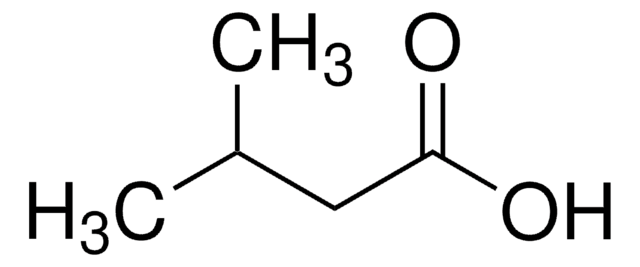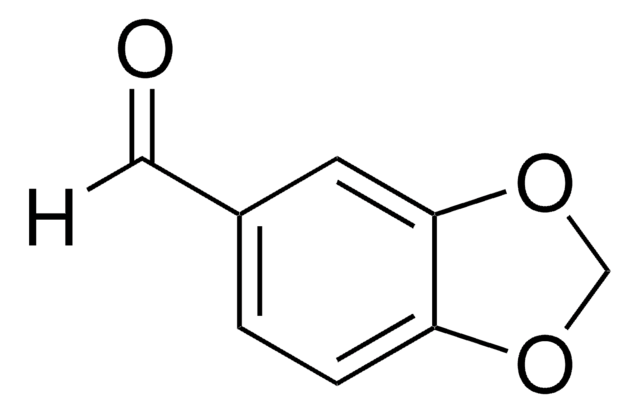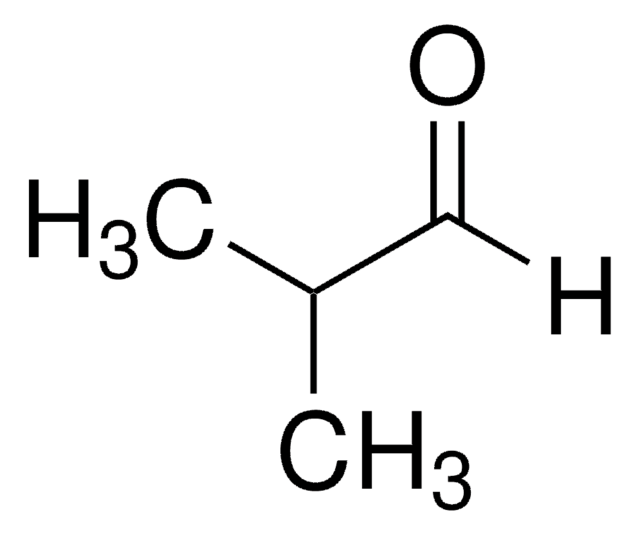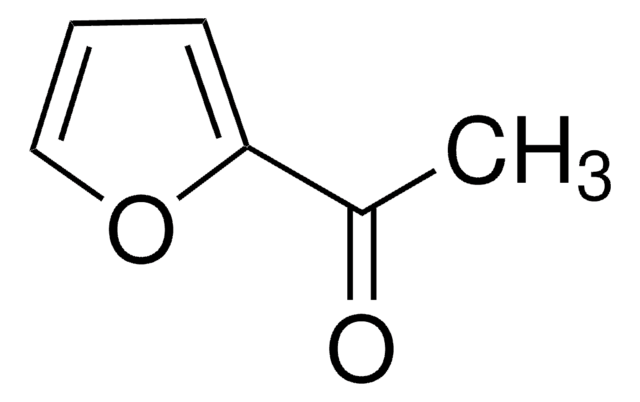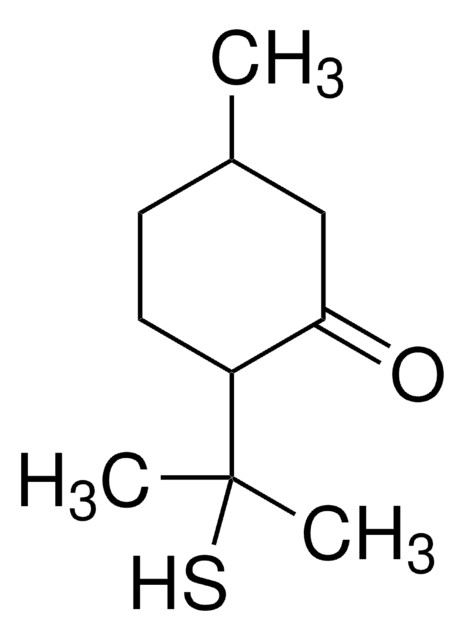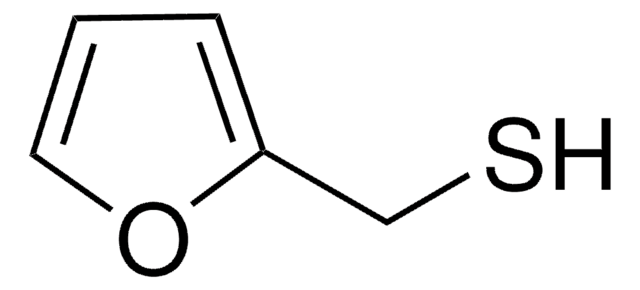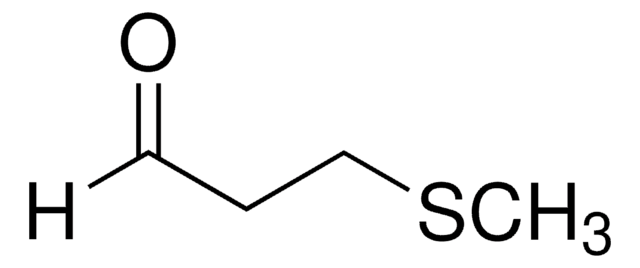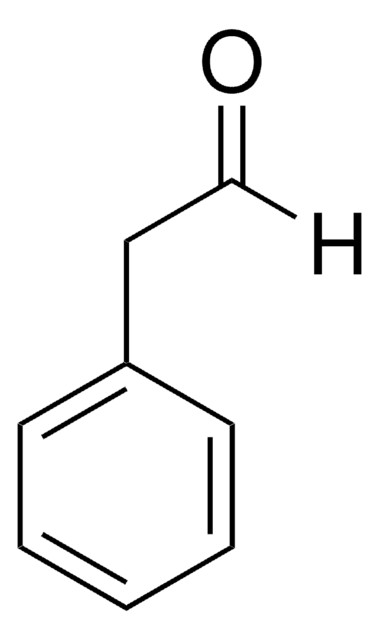W269212
Isovaleraldehyde
natural, ≥95%, FG
Synonym(s):
3-Methylbutanal, 3-Methylbutyraldehyde, NSC 404119
About This Item
Recommended Products
grade
FG
Fragrance grade
Kosher
natural
Quality Level
Agency
follows IFRA guidelines
meets purity specifications of JECFA
reg. compliance
EU Regulation 1223/2009
EU Regulation 1334/2008 & 178/2002
FDA 21 CFR 117
vapor density
2.96 (vs air)
vapor pressure
30 mmHg ( 20 °C)
Assay
≥95%
autoignition temp.
464 °F
greener alternative product characteristics
Less Hazardous Chemical Syntheses
Use of Renewable Feedstocks
Learn more about the Principles of Green Chemistry.
sustainability
Greener Alternative Product
refractive index
n20/D 1.388 (lit.)
bp
90 °C (lit.)
density
0.803 g/mL at 25 °C (lit.)
application(s)
flavors and fragrances
Documentation
see Safety & Documentation for available documents
food allergen
no known allergens
fragrance allergen
no known allergens
greener alternative category
, Aligned
Organoleptic
chocolate; fruity; ethereal; peach; sour
SMILES string
[H]C(=O)CC(C)C
InChI
1S/C5H10O/c1-5(2)3-4-6/h4-5H,3H2,1-2H3
InChI key
YGHRJJRRZDOVPD-UHFFFAOYSA-N
Looking for similar products? Visit Product Comparison Guide
General description
Application
- Contribution of phospholipase B to the formation of characteristic flavor in steamed sturgeon meat.: This study discusses how phospholipase B contributes to flavor formation in steamed sturgeon, including the role of isovaleraldehyde in enhancing sensory attributes, potentially applicable for food chemistry and biochemistry research (Yang Z et al., 2024).
- Catalytic hydroboration of aldehydes and ketones with an electron-rich acyclic metallasilylene.: This research explores the catalytic activity of metallasilylene complexes in the hydroboration of aldehydes, including isovaleraldehyde, highlighting its significance in synthetic chemistry and materials science (Kapp L et al., 2024).
- Effects of Storage in an Active and Spontaneous Controlled O(2)/CO(2) Atmosphere on Volatile Flavor Components and the Microbiome of Truffles.: This article examines how controlled atmospheric conditions affect the volatile profile of truffles, including isovaleraldehyde, providing insights into food preservation techniques and microbiome interactions (Li Q et al., 2024).
- GC-MS, GC-IMS, and E-Nose Analysis of Volatile Aroma Compounds in Wet-Marinated Fermented Golden Pomfret Prepared Using Different Cooking Methods.: Investigates how cooking methods impact the aroma profile of marinated pomfret, with a focus on isovaleraldehyde as a key volatile compound, relevant for studies on food quality and sensory analysis (Chen Q et al., 2024).
Signal Word
Danger
Hazard Statements
Precautionary Statements
Hazard Classifications
Aquatic Chronic 2 - Eye Irrit. 2 - Flam. Liq. 2 - Skin Sens. 1 - STOT SE 3
Target Organs
Respiratory system
Storage Class Code
3 - Flammable liquids
WGK
WGK 2
Flash Point(F)
32.9 °F - closed cup
Flash Point(C)
0.5 °C - closed cup
Personal Protective Equipment
Certificates of Analysis (COA)
Search for Certificates of Analysis (COA) by entering the products Lot/Batch Number. Lot and Batch Numbers can be found on a product’s label following the words ‘Lot’ or ‘Batch’.
Already Own This Product?
Find documentation for the products that you have recently purchased in the Document Library.
Customers Also Viewed
Our team of scientists has experience in all areas of research including Life Science, Material Science, Chemical Synthesis, Chromatography, Analytical and many others.
Contact Technical Service
